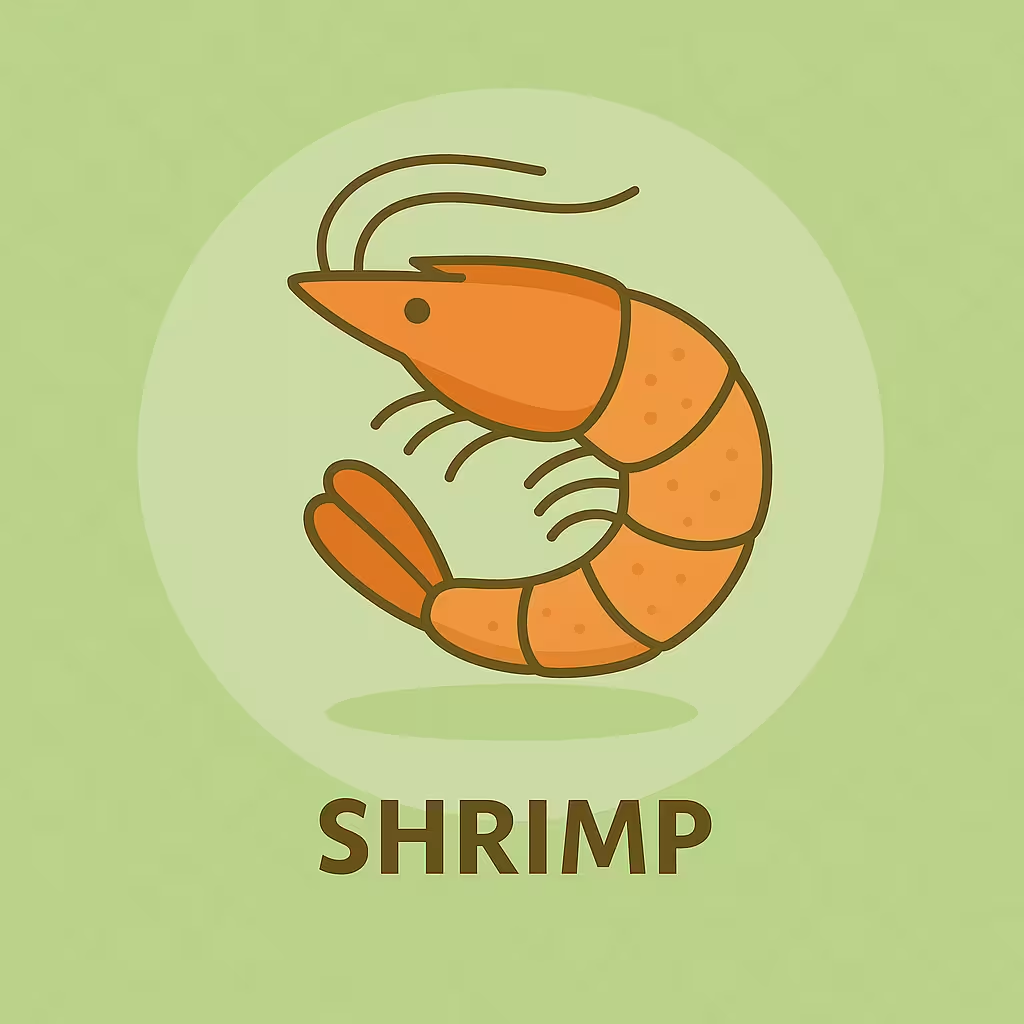Prawns (shrimp) have been a subject of debate among Hanafi scholars regarding their halal status. It's important to note that different schools of law have varying rules about seafood.
The Hanafi school of fiqh – one of the major Sunni Islamic legal schools – takes a unique stance on seafood. This has led many to ask “Is prawn halal for Hanafi Muslims?”
The short answer is that according to one Hanafi opinion, prawns are halal (permissible) because they are considered a type of fish. However, some other Hanafi scholars disagree, arguing that prawns are not fish and therefore not permissible to eat.
Due to this difference of opinion, Hanafi authorities often advise a cautious approach: while one may eat prawns, it could be better to avoid them if one wants to be extra careful.
Below, we delve into the Hanafi perspective in detail, focusing on why this shrimp debate exists and how classical and contemporary Hanafi scholars view prawn consumption.
Hanafi Criteria for Halal Seafood
In the Hanafi fiqh, not all seafood is considered halal. Hanafis restrict permissibility mainly to fish.
This principle is rooted in how early Hanafi jurists interpreted the Qur’anic verse on seafood. Allah Most High says in the Qur’an:
“Lawful to you is the game of the sea and its eating, as provision for you…”
Surah Al-Ma'idah (5:96).
Hanafi scholars understood “game of the sea” to refer specifically to fish and not general seafood.
This means that according to Hanafi law, any sea creature that is not categorized as a fish is generally not allowed for consumption. Creatures such as shellfish, crustaceans, mollusks, and other seafood (e.g. lobsters, crabs, oysters, etc.) have traditionally been considered impermissible or at least reprehensible (makruh) in the Hanafi view.
Where do prawns (shrimp) fit into this? Since Hanafis only allow fish, the key question became: Are prawns considered a type of fish or not? This classification is the determining factor in whether prawns are halal in the Hanafi madhhab.
Are Prawns Considered Fish? The Crux of the Issue
The crux of the prawn debate in Hanafi fiqh is whether prawns (shrimp) are classified as “fish” (Arabic: samak) or not.
This issue arises from differing perspectives between historic linguistic classification and modern scientific classification:
- Historical Arabic Classification: In the time of the Prophet ﷺ and early Muslim generations, Arab people considered shrimp/prawns to be a type of small fish. Early Arabic lexicons and scholars described the shrimp as “a very small red fish". This indicates that according to Arab customary usage at the time of revelation, prawns fell under the category of “fish” (samak). Based on this historical convention, many Hanafi jurists argue that prawns should be treated as fish and thus are halal.
- Modern Scientific Classification: Biology classifies prawns and shrimp as crustaceans, not fish. They differ significantly from fish in anatomy and taxonomic category. Some Hanafi scholars in later periods, especially with the advent of modern science, took this scientific distinction into account. They argued that since shrimp are not fish by scientific definition, they should not be permissible to eat under Hanafi rules. Scholars who adopt this approach consider prawns non-fish and therefore prohibit eating them (or label them makruh tahriman, meaning strongly disliked to the point of being sinful to consume).
It’s also worth noting that all three other Sunni schools (Shafi’i, Maliki, Hanbali) have no problem with shrimp and consider prawns unquestionably halal, which further supports the lenient view in Hanafi circles.
Differences of Opinion Among Hanafi Scholars on Prawns
Within the Hanafi school itself, two main opinions emerged regarding prawn/shrimp:
- Permissible Opinion – Prawns Are Halal Fish: Prawns are halal, treating them as a form of fish. According to this stance, eating shrimp or prawns is allowed and carries no dislike or reprehensibility.
- Strict (Cautious) Opinion – Prawns Are Not Fish, Thus Not Halal. Followers of this view often classify prawn and similar seafood as makruh tahriman (highly disliked/prohibited) or simply haram.
It’s important to clarify that both opinions are based on legitimate scholarly reasoning (ijtihad). The disagreement truly hinges on how to classify the creature. In practical terms, this means a Hanafi Muslim might find different rulings from different Hanafi authorities: one fatwa says “prawn is allowed”, another says “better to avoid prawns”. Both are rooted in Hanafi scholarship.
Conclusion: A Cautious Yet Permissible Approach
So, is prawn halal in the Hanafi school of thought?
In conclusion, yes – according to one opinion, prawns (shrimp) are halal and permissible to eat because they are classified as fish in the traditional sense. There is no intrinsic harm or sin in consuming prawns for Hanafi followers who accept this view. Given that the other mainstream Islamic schools and many Hanafi authorities allow prawns, there is ample room within Islamic law to consume them.
However, due to the valid difference of opinion among Hanafi scholars, one might choose to be cautious. It is recommended (though not required) to avoid eating prawns if you wish to steer clear of the scholarly dispute altogether.
Remember that the crux of this issue is classification, not an explicit religious prohibition – it comes down to whether one defines prawn as “fish” or not.
By knowing why the Hanafi school has differing opinions on prawns, Muslims can make informed choices that align with their faith and comfort level. If uncertain, consult a knowledgeable Hanafi scholar for personal guidance.
And Allah knows best.
FAQs
Can Sunni Muslims eat prawns?
All schools of thought except Hanafi unquestionably accept that prawns are permissible. In the Hanafi school of thought, there is 2 opinions. One opinion states it's permissible as they classify prawns as fish. The other opinion is that prawn is impermissible since they classify prawns as crustaceans, not fish.
Why is there a difference of opinion within the Hanafi school?
The difference of opinion comes from the classification of prawns, not an explicit religious prohibition. One opinion classifies prawns as fish, and so prawns are permissable wheras another opinion classifies prawns as crustaceans and so impermissible.
What is the Hanafi Criteria for Halal Seafood?
Hanafi scholars understood “game of the sea” (from Quran 5:96) to refer specifically to fish and not general seafood. Anything that is fish is seen as permissible.
What can Hanafi muslims eat instead of prawns?
Hanafi mulsims can decide to eat something other than prawns, such as halal meat and fish, which are permissible.
Are prawns considered fish in Hanafi Islamic law?
There are two opinions in the Hanafi school. One states that prawns are considered fish (and therefore halal), and another states that they aren't classified as a fish (and therefore impermissible).


















.avif)

Lorem ipsum dolor sit amet, consectetur adipiscing elit. Suspendisse varius enim in eros elementum tristique. Duis cursus, mi quis viverra ornare, eros dolor interdum nulla, ut commodo diam libero vitae erat. Aenean faucibus nibh et justo cursus id rutrum lorem imperdiet. Nunc ut sem vitae risus tristique posuere.
Lorem ipsum dolor sit amet, consectetur adipiscing elit. Suspendisse varius enim in eros elementum tristique. Duis cursus, mi quis viverra ornare, eros dolor interdum nulla, ut commodo diam libero vitae erat. Aenean faucibus nibh et justo cursus id rutrum lorem imperdiet. Nunc ut sem vitae risus tristique posuere.